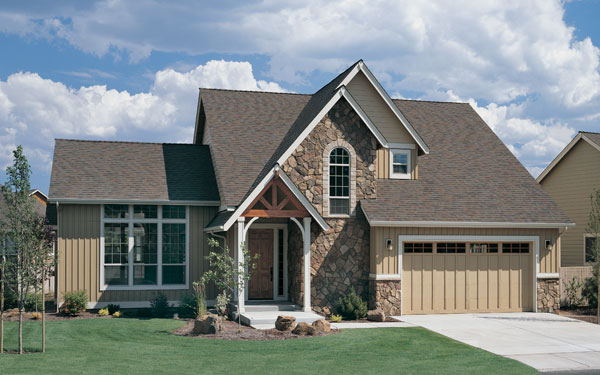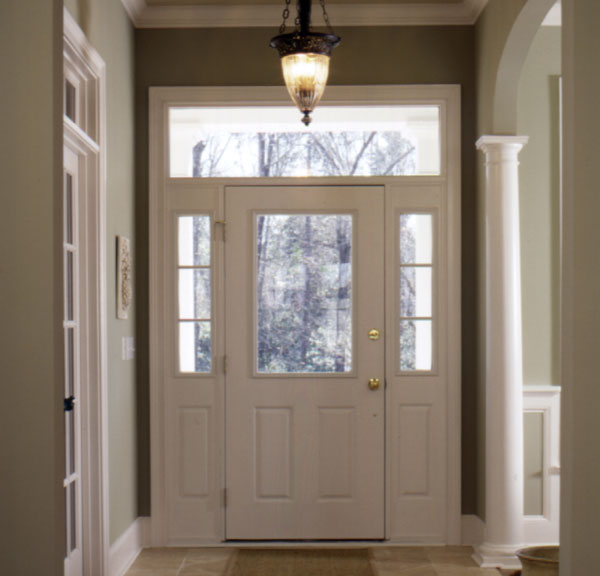 by Kimberly Blackford
by Kimberly Blackford
With rising costs and dwindling supplies, conserving energy is on the forefront of everyone’s mind.
Building your own home gives you the opportunity to create an energy efficient lifestyle right from the start. There are three basic components to focus on to ensure your home will conserve energy no matter where you live. These include plenty of insulation, proper exposure to the sun and the use of efficient heating and cooling systems.

View This House Plan
View Other Craftsman House Plans
Insulation.
Whatever the climate, insulation is the most important way to keep warm and cool air from entering or escaping. Areas needing insulation are the exterior walls, basements, floors, cantilevered areas, walls and ceilings between heated and unheated areas.
Types of insulation are compared according to their R-values, the resistance to heat flow. The greater the R-value the more the insulation stops heat or cool air from leaking out. The most effective insulation materials are polyurethane and polystyrene, known as “foam” insulation. They have the highest R-values, but also are more expensive. Mineral wool, a generic term including fiberglass, glass wool and rock wool, is the most widely used insulation type because it is versatile and fairly inexpensive. Another type of insulation, made out of wood fiber, is called “loose fill.” It is poured from bags or blown with special equipment into cavities that are not easily reachable. Its low cost is offset by a higher risk of fire, rot and insect infestation.

View This House Plan
View Other Southern House Plans
Doors and Windows.
Since most heat escapes from a home through the cavities in its exterior, created by doors and windows, insulating these areas is crucial. Use double or triple-pane windows throughout the house. Multi-pane windows allow just as much heat to enter as do single-pane windows, but they sharply reduce its outward flow. Double-pane windows can cut heat loss by 50 percent over single-pane windows. Triple-pane windows can cut heat loss by 65 percent, although they can be very costly and too heavy for some window frames. In addition, caulking should be applied along window and door frames, as well as around pipes, vents and other perforations of your home’s outer shell. Long-life silicone or latex caulking work best.
Heating and Cooling Systems.
Outfitting your home with energy-efficient heating and cooling systems will keep your family comfortable on the coldest and the hottest days, while saving a large sum of money. Items to look for may carry the EnergyStar® logo. Some local electric and gas companies even offer rebates to homeowners with systems backed with this certification.
Solar Heat.
Another attractive way to heat your home is with the simple, natural sun. Think about the site you’re going to build on and the home’s orientation in relationship to the sun. You should position your house so that most of the window glass faces south to take advantage of the sun’s heat. In addition, solar panels may be built in throughout your home to increase the use of this energy source.
There are many decisions to make when building your home. Investing the time to consider all of the options to create an energy-efficient home, as well as investing a little more money, will certainly pay off in the future.
Here are few tips to think about as you go about your daily life.
• When nights are shorter in the Summer, adjust outdoor light timers to save money and extend bulb life.
• Shelter sun-exposed windows, and keep blinds and drapes closed on hot, sunny days.
• Keep windows closed in the heat of the day. Open windows in the cool of night.
• Make full use of microwaves, toaster ovens and slow cookers versus the traditional oven.
• Only run the dishwasher on a full load and use the range hood to vent excess heat and humidity.
• Shade your air conditioner from direct sunlight.
• Line dry laundry to save money and get summertime-fresh smelling clothes.
• Only wash laundry on full loads and with cold water whenever possible.
• Close off any unused rooms.
• Turn off lights when not in use.
• When baking, keep the oven door tightly closed and use the oven light to check on progress.
Here are some related articles:
Save this article to:
back to top